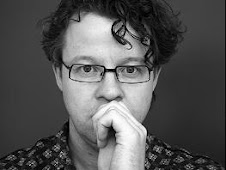Swedish consulting buying companies are stuck in an ineffective purchasing model. To be able to compete globally, the CFOs have to start thinking strategically, says this week's guest columnist.
Most Swedish companies still choses to have IT-consultants permanently located in their offices. In principle, they are like employees with the largest exception of being more expensive for the company. Also, competence development often gets de-prioritized. Neither the manager at the customer nor the consulting manager takes responsibility for the consultants competence. The prior wants the consulting hours they pay for and the latter as many billable hours as possible.
By migrating from today's fixed consulting team to more flexible alternatives, the buyers would be able to regularly adapt competence according to need in various development projects. Instead of using, for example, a team of 6 consultants on-site, a company could - without increasing its costs - have 2 consultants locally and some ten consultants offshore, e.g. in China.
The consultants onsite will then act as a bridge between customer and the outsourced consultants, securing scaling up and down the team and ensure adequate competence at any given time. Consultants based in Sweden can support several projects and keep up-to-date with the latest technical developments. At the same time, it is crucial to have a project manager locally off-shore - in China as in the example - with responsibility to build and retain the local competence.
With this setup of right-shoring, companies can reduce its costs given lower rates and at the same time keep competence competitive. Additionally, productivity increase by leverage time differences, shorter and more spread out vacations, etc. E.g., a Korean employee works 2 193 hours p.a. in average and the average Swede, 1 644 hours, according to OECD.
In the two examples below, I compare traditional project set-ups with right-shoring models. Example two is from a real customer whereas the first one is based on standard calculations:
1a) A project in Sweden operated during 12 months with three local consultants to deliver a project. Assume the cost is 800 SEK p.h. and they work 1,600 hours each. Total cost equals 3,840,000 SEK.
1b)An alternative solution is to source a part time project manager, working about 2 days a week with project management and delivery: a team of 5 developers and 1 tester in China working about 1,600 hours and a part time project manager in China. Assume hourly rates for the Swedish project manager is 1,200 SEK: for project manager in China 300 SEK, developers 250 SEK and tester 200 SEK. The project can be delivered at least two months earlier; given shorter vacations and less holidays, the Chinese team can be productive even when the Swedes have time off. Most likely, the end result will also enjoy better quality and more thoroughly tested as the larger team can include more specialist functions, such as a dedicated tester. The total estimated cost 3,328,000 SEK.
Alternative 1b provides several benefits: 13% reduced cost, shorter delivery times and a better end-result.
2a) A company wants to hire six people to develop several mobile and embedded applications for different systems and terminals. For sure, it'll take at least four months before all six can start (in best case). The cost in Stockholm would be about 100,000 SEK p.m. p.p. The total cost ends up at 600,000 SEK p.m. and potentially a half million SEK in recruitment fees.
2b) The alternative could be to have two consultants onsite and four developers and two testers in China. The team is fully operational within two month. The consultants may cost about 120,000 SEK p.m., each developer 40,000 SEK and each tester 30,000 SEK p.m. Thanks to a larger team and shortened start-up, the new products can be delivered and launched at least two months ahead. The total cost is 460,000 SEK p.m.
Alternative 1b provides several benefits: 23% reduced cost, and significant shorter time-to-market.
I hear a lot of people having or knowing about bad experiences in off-shoring. I dare saying that most of these issues relates to experiences from off-shoring childhood some ten years ago. At that time, the conditions for communication were far from what we have today with horrible phone and data communications.
Today, significant improvements are in place and the competencies in countries such as China is nowadays almost as good as in Sweden.
When it comes to develop of physical products, many large companies already have product development distributed all over the world. Corporate managements should also think alike for system and software development, which tends to become core business in many companies. If Swedish companies' system development is more expensive and slower than competitors, we risk to lose our global competitiveness.
It should be in all CFO's and finance managers interest to engage in how its organization uses its resources for system development and purchases of consulting resources. Those leveraging right-shoring's flexible team setup do have the chance to reduce costs, improve its efficiency and shorten time-to-market. Thereby delivering future innovations and shine on the global market.
